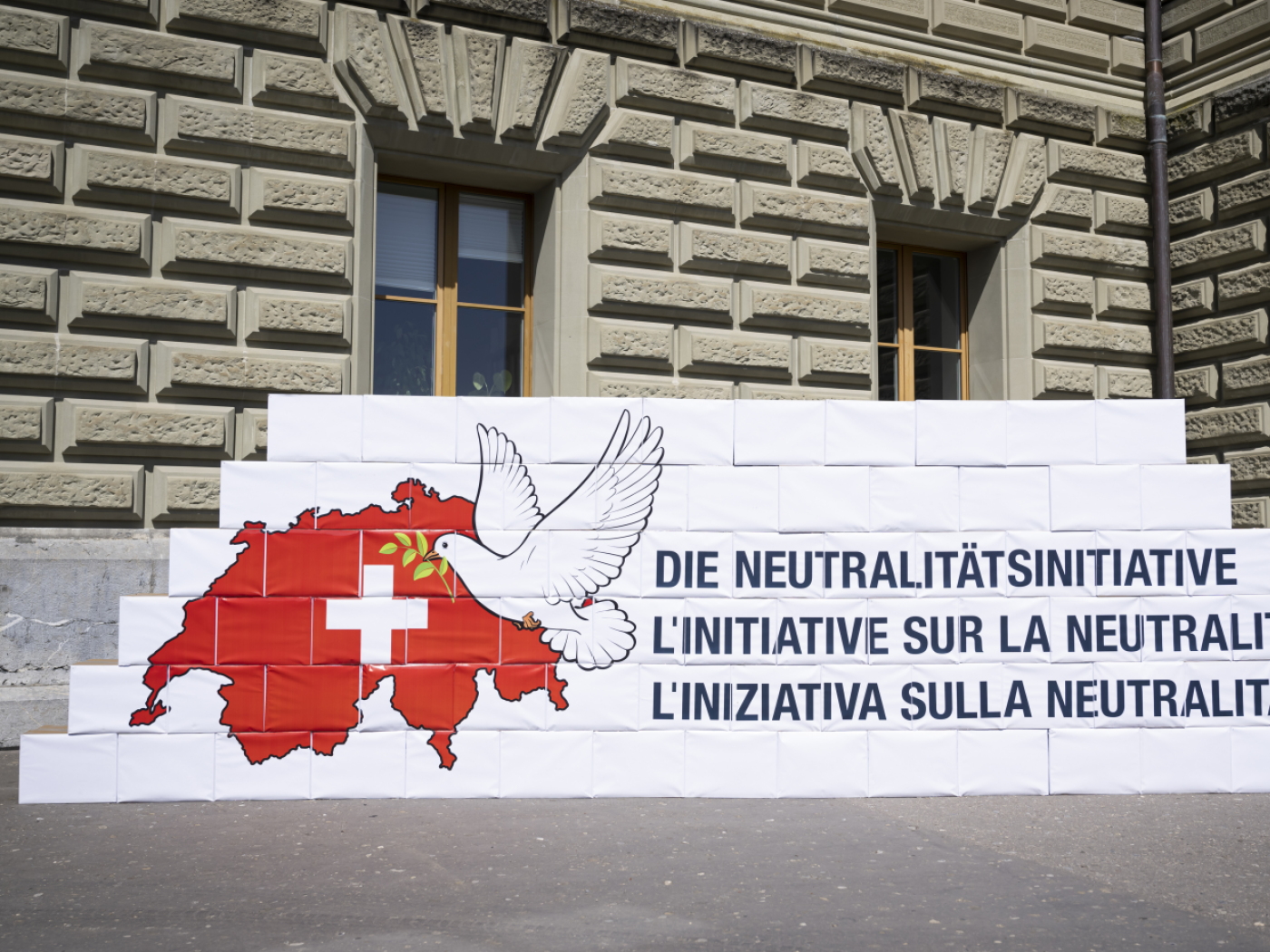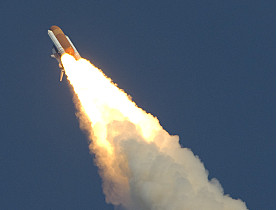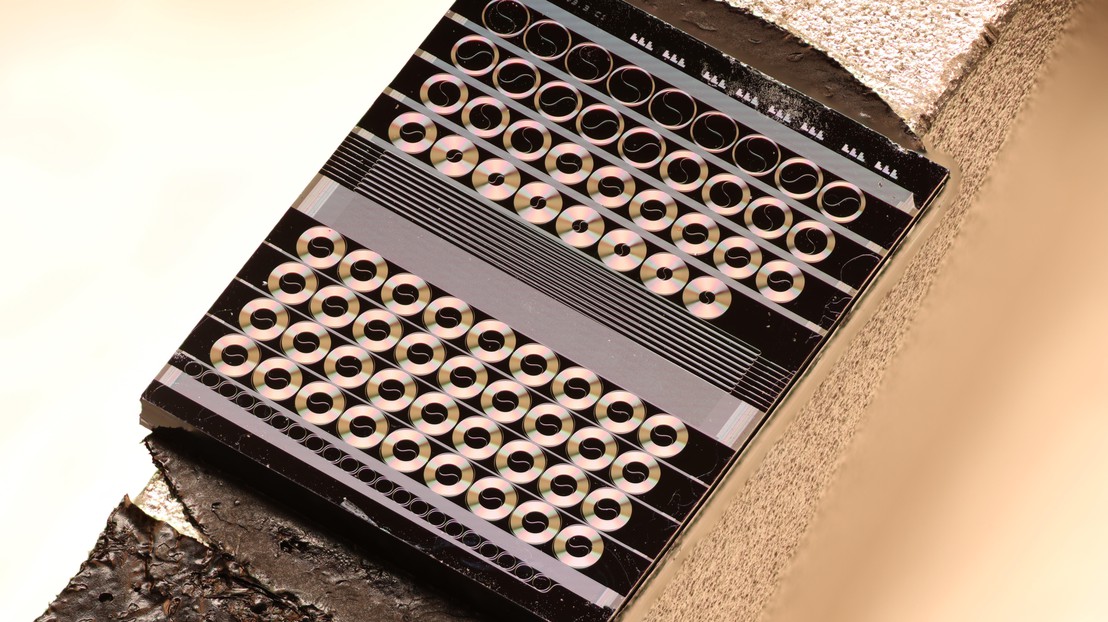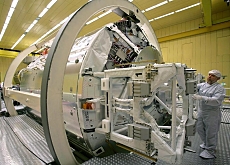
Swiss experiments head out to space

The Columbus laboratory, built by the European Space Agency (Esa), has begun its journey to the International Space Station (ISS) on board the shuttle Atlantis.
Swiss firms, researchers and the government all have a stake in the science module, which took off from the Kennedy space centre in Florida on Thursday.
Columbus was originally supposed to head to the ISS in 2004, but its flight was delayed after the shuttle Columbia burnt up on re-entry in 2003.
The lab should perform hundreds of experiments during its planned lifetime – ten years.
The 4.5-metre cylinder, which cost an estimated $1 billion (SFr1.1 billion), houses five so-called racks, each roughly the size of a telephone booth. Each of these is in fact an autonomous laboratory, given over to research in a particular field.
The Biolab, which will handle biological experiments on Columbus, will be monitored in part by researchers from Zurich’s Federal Institute of Technology.
These experiments will try to understand what role weightlessness plays at all levels of an organism, from the effects on a single cell up to those on humans.
The Biotesc team of the institute’s space biology group is acting as the facility support centre for Biolab, as well as taking responsibility for the Swiss user support for ISS operations.
These researchers will also take part in Biolab’s first experiment, looking at how plants grow in a weightless environment.
Keeping time
Another future project on board Columbus is the testing of new atomic clocks. It will be carrying a so-called space hydrogen maser designed by Neuchâtel’s observatory, whose precision will be compared with other types of clocks.
These timekeeping systems will also be used to test some of Einstein’s theories.
Swiss firms also played a role in the construction of Columbus. Equipment designed and developed in Switzerland include sensors for detecting humidity, power switching boxes and high precision joints.
But while the science module has finally got off the ground, the future of another major experiment destined for the ISS is up in the air.
The Alpha Magnetic Spectrometer, whose proponents say it would make a bigger scientific impact than Columbus, is waiting to find out if Nasa will ever find space for it on one of the shuttle’s last nine flights before being phased out.
Despite its backers spending $1.5 billion over 12 years and an earlier commitment, the American space agency could very well decide to leave it in storage at Cern, the European particle physics laboratory near Geneva where it is being completed.
Delivery could however take place later this year if Nasa finally decided on a last mission to service the Hubble space telescope.
Esa itself has said that if the module did not it make to the ISS, it would be huge setback for the scientific community. Designed to discover the properties of so-called dark matter- one of physics ongoing mysteries – it is also supposed to look at how the universe formed.
swissinfo with agencies
The International Space Station is a research facility currently being assembled in space. The on-orbit assembly of ISS began in 1998. The space station is in a low Earth orbit and can be seen from Earth with the naked eye: It has an average altitude of 340 km above the surface of the Earth.
The ISS is a joint project between the space agencies of the United States, Russia, Japan, Canada and Esa.
The projected completion date is 2010, with the station remaining in operation until around 2016. As of 2007, the ISS is already larger than any previous space station.
The ISS has been continuously inhabited since the first resident crew entered the station on November 2, 2000.
The station is serviced primarily by Russian Soyuz and Progress spacecraft and by US shuttles.

In compliance with the JTI standards
More: SWI swissinfo.ch certified by the Journalism Trust Initiative






































You can find an overview of ongoing debates with our journalists here . Please join us!
If you want to start a conversation about a topic raised in this article or want to report factual errors, email us at english@swissinfo.ch.